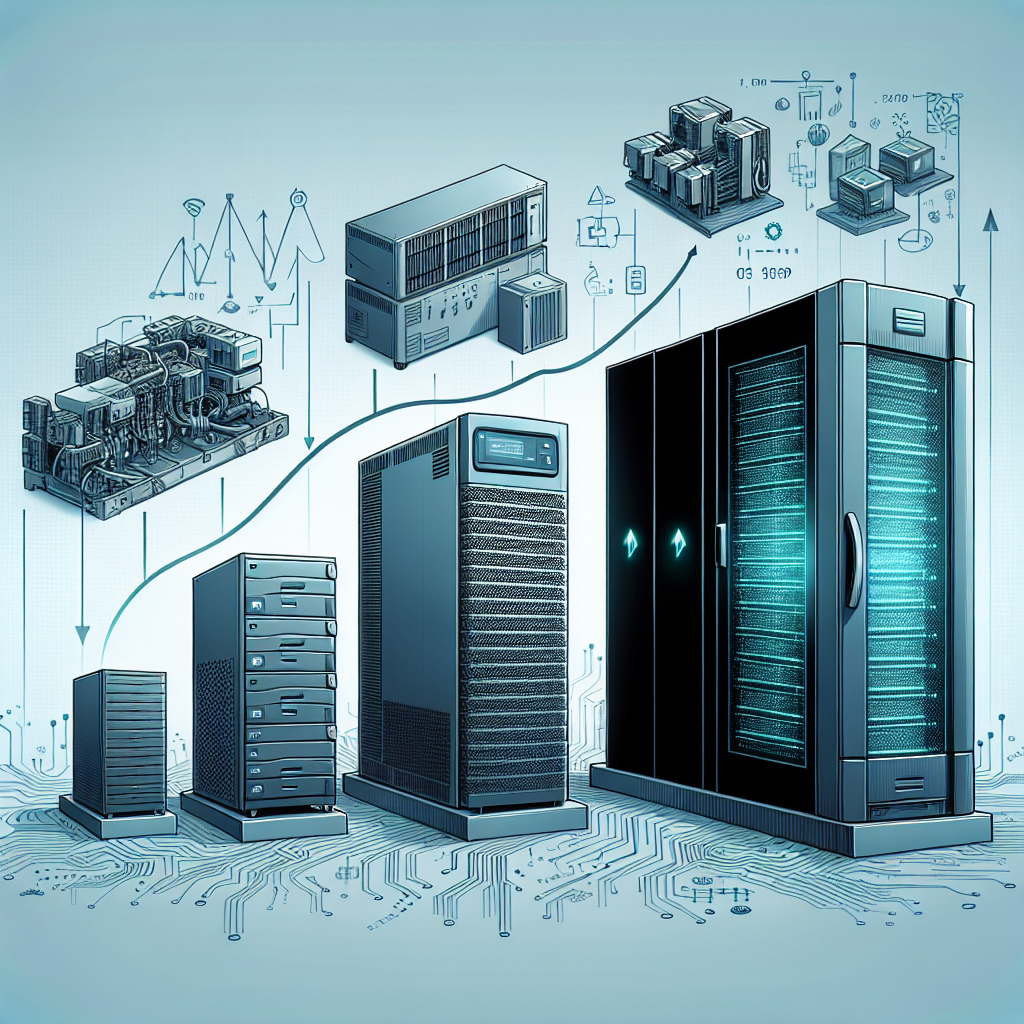Data centers play a crucial role in today’s digital world, serving as the backbone for storing, processing, and managing vast amounts of data. With the increasing reliance on data centers, ensuring their uninterrupted operation is paramount. Uninterruptible Power Supply (UPS) technology is a critical component in ensuring the continuous availability of data centers by providing backup power in the event of a power outage.
As technology continues to evolve, so too does UPS technology. In the coming years, we can expect to see several key trends shaping the future of UPS technology in data centers. Here are some of the trends to watch for:
1. Increased Efficiency: One of the most significant trends in UPS technology is the drive towards increased efficiency. Data centers consume a significant amount of energy, and UPS systems play a crucial role in ensuring that this energy is used efficiently. Manufacturers are constantly innovating to develop UPS systems that are more energy-efficient, helping data centers reduce their carbon footprint and operating costs.
2. Modular and Scalable Designs: As data centers continue to grow in size and complexity, the need for UPS systems that can easily adapt to changing demands is becoming increasingly important. Modular and scalable UPS designs allow data center operators to easily add or remove UPS modules as needed, providing flexibility and scalability to meet changing power requirements.
3. Lithium-ion Batteries: Traditional lead-acid batteries have long been the standard for UPS systems, but lithium-ion batteries are gaining popularity due to their higher energy density, longer lifespan, and faster recharge times. As the cost of lithium-ion batteries continues to decrease, we can expect to see an increased adoption of this technology in UPS systems in data centers.
4. Smart Monitoring and Management: With the rise of the Internet of Things (IoT) and connected devices, UPS systems are becoming smarter and more interconnected. Smart monitoring and management systems allow data center operators to remotely monitor the status of their UPS systems, perform predictive maintenance, and optimize energy usage. These systems help improve uptime, reduce downtime, and enhance overall data center performance.
5. Integration with Renewable Energy Sources: As the push towards sustainability and renewable energy sources continues, UPS systems are being integrated with solar panels, wind turbines, and other renewable energy sources. This allows data centers to harness clean energy and reduce their reliance on traditional power sources, helping them lower their carbon footprint and operating costs.
In conclusion, the future of UPS technology in data centers is bright, with advancements in efficiency, scalability, battery technology, smart monitoring, and integration with renewable energy sources. Data center operators should keep an eye on these trends and consider incorporating them into their UPS systems to ensure the continuous availability and reliability of their data centers in the coming years.


Leave a Reply